Links to external sources may no longer work as intended. The content may not represent the latest thinking in this area or the Society’s current position on the topic.
Social programme: Fellows' research weekend on 'Handling Change'
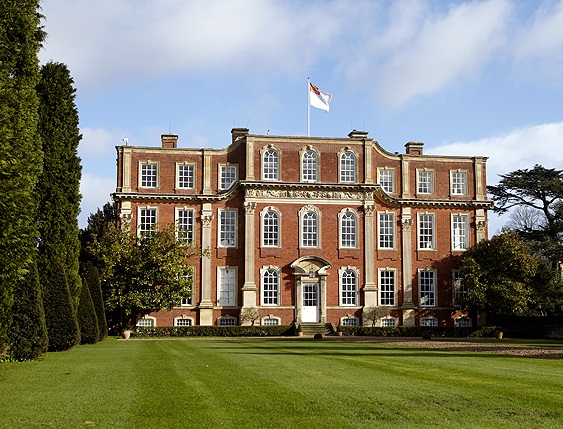
An opportunity for Fellows to meet and socialise whilst discovering and sharing science. Hosted by Professor Jonathan Ashmore and Professor Christl Donnelly.
Research weekends at Chicheley Hall are part of the Fellows' social programme. These relaxed weekends allow you and your guests to socialise and take part in informal discussions and talks on a range of scientific topics.
Join hosts Professor Jonathan Ashmore and Professor Christl Donnelly for the next Fellows’ Research Weekend on 9-10 March 2019. Each day will feature a series of relaxed talks, lively discussion and opportunities to enjoy the surroundings of Chicheley Hall.
The full programme, including speakers, will be available shortly. In the meantime, if you would like any more information please contact the Scientific Programmes team at fellowship@royalsociety.org.
Organisers
Schedule
| 13:30 - 13:45 |
Welcome by hosts
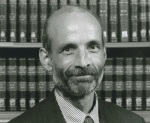
Professor Jonathan Ashmore, University College London, UK

Professor Jonathan Ashmore, University College London, UKJonathan Ashmore is Bernard Katz Professor of Biophysics at University College London. Although he completed a PhD in theoretical physics with Tom Kibble at Imperial College London and worked for a short while as a postdoc with Abdus Salam in Trieste, he moved to studying biology after reading C H Waddington's books on 'Towards a Theoretical Biology'. And promptly took up laboratory work, first in visual neuroscience, working on the retina in the Biophysics Department at UCL and then at the University of California in San Francisco. He started working on hearing mechanisms while a temporary lecturer at Sussex University and then in 1983 moved to the University of Bristol as a lecturer. He became a Professor in 1993 before taking up his current appointment at UCL in 1996. He has worked in Japan and for a while held a research chair at the Institut Pasteur in Paris, but still considers himself primarily a lab rat. 
Professor Christl Donnelly CBE FMedSci FRS

Professor Christl Donnelly CBE FMedSci FRSChristl Donnelly is a statistician and epidemiologist studying the spread and control of infectious diseases, with a particular interest in outbreaks. She studied mathematics (BA) at Oberlin College and biostatistics (MSc, ScD) at Harvard School of Public Health, graduating in 1992. Following a lecturer position at University of Edinburgh (1992-95), she joined the Wellcome Trust Centre for the Epidemiology of Infectious Diseases at University of Oxford (1995-00). Since 2000, she has worked at Imperial College London. Christl has studied Zika virus, Ebola, MERS, influenza, SARS, bovine TB, foot-and-mouth disease, rabies, cholera, dengue, BSE/vCJD, malaria and HIV/AIDS. She is a leading member of the WHO Ebola Response Team (2014-). She was also deputy chair of the Independent Scientific Group on Cattle TB (1998-2007) which designed, oversaw and analysed the Randomised Badger Culling Trial. In addition to epidemiology and disease control, she is interested in conservation and animal welfare. She is a Fellow of the Academy of Medical Sciences and an Honorary Fellow of the Zoological Society of London. In 2002, she won the Franco-British prize for scientific research from the Académie des Sciences in Paris. |
|---|---|
| 13:45 - 14:35 |
Human-induced climate change and loss of biodiversity threaten sustainable development
While normally considered environmental issues, human-induced climate change and loss of biodiversity are economic, development, social and security issues, threatening the ability of countries to achieve most of the seventeen UN Sustainable Development Goals, especially poverty alleviation, food, water and energy security, and a healthy, equitable and conflict-free society. The vast majority of countries have acknowledged the importance of these issues by endorsing the Paris climate agreement and the 20 biodiversity Aichi targets of the Convention on Biological Diversity. Unfortunately, the world is not on course to meet the Paris target of 2oC, let alone the aspiration target of 1.5oC, and most of the twenty Aichi targets will not be met anywhere in the world. The current country pledges under the Paris agreement place us on a pathway where the world will on average warm by 3-4oC. Technologies, policies and practices do exist to achieve the Paris targets but would require unprecedented changes in the production and use of energy and land-use management. Loss of biodiversity at the genetic, species and landscape level is projected under literally all plausible futures due to the conversion, fragmentation and over-exploitation of ecosystems, pollution, invasive alien species and human-induced climate change, which in turn adversely impact the material, regulating and non-material contributions of nature to people. The conservation and sustainable use of biodiversity require transformational changes, facilitated through more integrated multi-sectoral policies, financing, appropriate technologies, and behaviour changes, coupled with more inclusive, participatory and decentralized governance systems at the national, regional and global level. 
Sir Robert Watson FRS

Sir Robert Watson FRSRobert ‘Bob’ Watson is a physical chemist specialising in atmospheric science issues and a leading authority on the science of climate change due to human activity. His research on halogen and hydroxyl free-radical reactions significantly informed models of how chlorofluorocarbons and other manmade chemicals deplete the Earth’s ozone layer. Bob’s career spans research and advisory roles, including key roles with NASA, as a science policy adviser to US President Bill Clinton and at the World Bank. For the UK government, Bob was Chief Scientific Adviser to the Department for Environment, Food and Rural Affairs. He was Chair of the Intergovernmental Panel on Climate Change from 1997 to 2002. Bob’s many accolades include the 1993 AAAS Award for Scientific Freedom and Responsibility, the insignia of Honorary Companion of St Michael and St George in 2003, and the 2010 Asashi Blue Planet Prize. He was knighted in 2012 for his service to government. |
| 14:35 - 15:25 |
Science and policy responses to the global decline of biodiversity
Biodiversity decline is continuing across the world and is of increasing concern to ecologists, earth system scientists and indeed to the general public. Increasing rates of species extinction and loss of population abundance across many groups of species are continuing despite efforts from conservationists, and in the face of many international and national-level policy commitments dating back over 30 years. One important reason for a failure to even slow the rates of loss seems to be that successful biodiversity conservation and restoration will not be achieved by conservation actions alone. System-level interventions are needed, especially in the food system but also related to patterns of urban growth. Georgina Mace will describe recent work to create a plan to ‘bend the curve’ of biodiversity loss and to galvanise international biodiversity recovery after 2020. This involves learning from other related areas such as climate change and disease eradication that set ambitious goals over long time periods, and respond adaptively to new information. 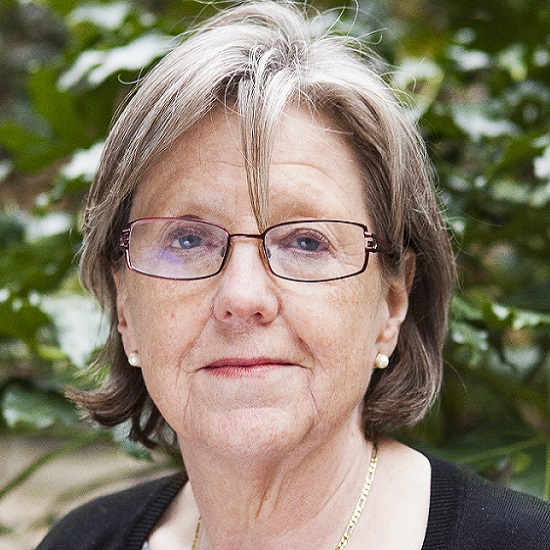
Professor Georgina Mace CBE FRS, University College London, UK

Professor Georgina Mace CBE FRS, University College London, UKGeorgina Mace DBE FRS is Professor of Biodiversity and Ecosystems at the UCL Centre for Biodiversity and Environment Research (CBER). Her first degree was in Zoology and she has a PhD in evolutionary ecology. Her research interests are in measuring the trends and consequences of biodiversity loss and ecosystem change, especially in the context of climate and other global changes. Her work has contributed to methods for identifying species at risk of extinction and assessing biodiversity in relation to ecosystem services. Her recent work focuses on the links between environmental condition and poverty alleviation, and debates concerning natural capital accounting. She was elected an FRS in 2002, was the winner of the 2007 International Cosmos Prize and the 2016 Heineken Prize for Environmental Science, and made DBE in 2016. |
| 15:25 - 15:55 | Tea |
| 15:55 - 16:45 |
Handling change: lessons from bacteria
It can be argued that bacteria are the Masters when it comes to coping with change, and the molecular mechanisms that underpin their success on earth are fascinating. Our understanding began a century ago with the discovery of enzyme adaptation, but the ensuing molecular biology and genomics revolutions have successively changed our view of our oldest neighbours, who, occasionally, become our adversaries. 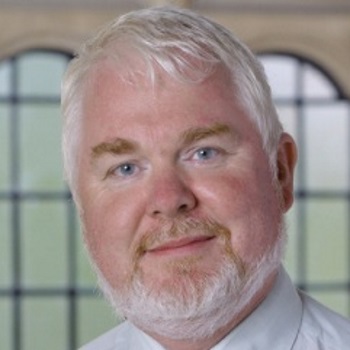
Professor Stephen Busby FRS, University of Birmingham, UK

Professor Stephen Busby FRS, University of Birmingham, UKResearch in Steve Busby’s lab is concerned with understanding the molecular mechanisms that control gene expression in bacteria, with particular attention to studying the regulation of transcription initiation in Escherichia coli. |
| 16:45 - 17:35 |
Why is everything so bell-shaped?
The famous bell-shaped curve is ubiquitous in statistics. It also occurs in geometry. But why? How can it be that whenever you add small independent random quantities the sum always has a bell-shaped distribution? The usual mathematical proofs establish the fact but don't really give an intuitive idea of what causes this astonishing phenomenon. Professor Ball will explain in elementary terms how the physics of heat transfer leads to just such an intuition. 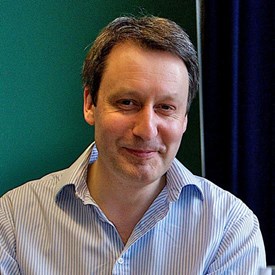
Professor Keith Ball, University of Warwick, UK

Professor Keith Ball, University of Warwick, UKKeith Ball is a pure mathematician who specialises in the fields of functional analysis and information theory. In collaboration, he solved a longstanding question in information theory concerning whether the central limit theorem of probability is driven by an analogue of the second law of thermodynamics. Keith’s solution made use of a new formula for information. Among Keith’s proofs in functional analysis is one relating to Tarski’s ‘plank’ problem in many dimensions. The plank problem derives its name from a question concerning the minimum number of planks required to cover a convex tabletop. During his career, Keith served as the scientific director of the International Centre for Mathematical Sciences. He has received the Whitehead Prize of the London Mathematical Society, amongst other awards. Keith is the author of Strange Curves, Counting Rabbits, and other Mathematical Explorations (2006) — a recreational maths book aimed at those familiar with basic calculus. |
| 10:00 - 10:15 |
Welcome by hosts

Professor Jonathan Ashmore, University College London, UK

Professor Jonathan Ashmore, University College London, UKJonathan Ashmore is Bernard Katz Professor of Biophysics at University College London. Although he completed a PhD in theoretical physics with Tom Kibble at Imperial College London and worked for a short while as a postdoc with Abdus Salam in Trieste, he moved to studying biology after reading C H Waddington's books on 'Towards a Theoretical Biology'. And promptly took up laboratory work, first in visual neuroscience, working on the retina in the Biophysics Department at UCL and then at the University of California in San Francisco. He started working on hearing mechanisms while a temporary lecturer at Sussex University and then in 1983 moved to the University of Bristol as a lecturer. He became a Professor in 1993 before taking up his current appointment at UCL in 1996. He has worked in Japan and for a while held a research chair at the Institut Pasteur in Paris, but still considers himself primarily a lab rat. 
Professor Christl Donnelly CBE FMedSci FRS

Professor Christl Donnelly CBE FMedSci FRSChristl Donnelly is a statistician and epidemiologist studying the spread and control of infectious diseases, with a particular interest in outbreaks. She studied mathematics (BA) at Oberlin College and biostatistics (MSc, ScD) at Harvard School of Public Health, graduating in 1992. Following a lecturer position at University of Edinburgh (1992-95), she joined the Wellcome Trust Centre for the Epidemiology of Infectious Diseases at University of Oxford (1995-00). Since 2000, she has worked at Imperial College London. Christl has studied Zika virus, Ebola, MERS, influenza, SARS, bovine TB, foot-and-mouth disease, rabies, cholera, dengue, BSE/vCJD, malaria and HIV/AIDS. She is a leading member of the WHO Ebola Response Team (2014-). She was also deputy chair of the Independent Scientific Group on Cattle TB (1998-2007) which designed, oversaw and analysed the Randomised Badger Culling Trial. In addition to epidemiology and disease control, she is interested in conservation and animal welfare. She is a Fellow of the Academy of Medical Sciences and an Honorary Fellow of the Zoological Society of London. In 2002, she won the Franco-British prize for scientific research from the Académie des Sciences in Paris. |
|---|---|
| 10:15 - 11:05 |
Let there be light: The observational quest for the earliest galaxies
The first billion years after the Big Bang is widely regarded as the final observational frontier in assembling a complete picture of cosmic history. During this period early stars and galaxies formed and the universe became bathed in light for the first time. Hydrogen clouds in the space in between galaxies transformed from an atomic gas to a fully ionized medium consisting of detached protons and electrons. How and when did this 'cosmic reionization' occur, and were early star-forming galaxies the primary agents? Recent progress has raised the exciting prospect that we will soon be able to directly witness this dramatic period when the universe emerged from darkness and the first galaxies began to shine. Professor Ellis will review the rapid progress being made with current facilities and the prospects with upcoming ones, including the James Webb Space Telescope and extremely large ground-based telescopes now under construction. The motivation is fundamental: the origin of starlight begins the process of chemical evolution which ultimately leads to our own existence in this remarkable universe. 
Professor Richard Ellis CBE FRS, University College London, UK

Professor Richard Ellis CBE FRS, University College London, UKProfessor Richard Ellis CBE FRS is an observational astronomer who studies the distant Universe with a variety of facilities including the Hubble Space Telescope and the twin Keck 10 meter telescopes in Hawaii. Professor Ellis obtained his PhD at Oxford University in 1974. As a young researcher he established a major astronomy group at Durham University and later became the Director of the Institute of Astronomy at Cambridge University. He emigrated to the United States in 1999 where he has played a leading role in developing the science case and international partnership for the Thirty Meter Telescope: an ambitious next generation ground-based telescope to be completed in 2020. Ellis' research interests include cosmology - the form and content of the Universe as a whole - and the evolution of galaxies over cosmic time. He has been influential in making many discoveries in these areas and is one of the world's most highly-cited astrophysicists. His awards include the Gruber Cosmology Prize and the Gold Medal of the Royal Astronomical Society. |
| 11:05 - 11:55 | Talk 6 |
| 11:55 - 12:15 |
Close of meeting

Professor Jonathan Ashmore, University College London, UK

Professor Jonathan Ashmore, University College London, UKJonathan Ashmore is Bernard Katz Professor of Biophysics at University College London. Although he completed a PhD in theoretical physics with Tom Kibble at Imperial College London and worked for a short while as a postdoc with Abdus Salam in Trieste, he moved to studying biology after reading C H Waddington's books on 'Towards a Theoretical Biology'. And promptly took up laboratory work, first in visual neuroscience, working on the retina in the Biophysics Department at UCL and then at the University of California in San Francisco. He started working on hearing mechanisms while a temporary lecturer at Sussex University and then in 1983 moved to the University of Bristol as a lecturer. He became a Professor in 1993 before taking up his current appointment at UCL in 1996. He has worked in Japan and for a while held a research chair at the Institut Pasteur in Paris, but still considers himself primarily a lab rat. 
Professor Christl Donnelly CBE FMedSci FRS

Professor Christl Donnelly CBE FMedSci FRSChristl Donnelly is a statistician and epidemiologist studying the spread and control of infectious diseases, with a particular interest in outbreaks. She studied mathematics (BA) at Oberlin College and biostatistics (MSc, ScD) at Harvard School of Public Health, graduating in 1992. Following a lecturer position at University of Edinburgh (1992-95), she joined the Wellcome Trust Centre for the Epidemiology of Infectious Diseases at University of Oxford (1995-00). Since 2000, she has worked at Imperial College London. Christl has studied Zika virus, Ebola, MERS, influenza, SARS, bovine TB, foot-and-mouth disease, rabies, cholera, dengue, BSE/vCJD, malaria and HIV/AIDS. She is a leading member of the WHO Ebola Response Team (2014-). She was also deputy chair of the Independent Scientific Group on Cattle TB (1998-2007) which designed, oversaw and analysed the Randomised Badger Culling Trial. In addition to epidemiology and disease control, she is interested in conservation and animal welfare. She is a Fellow of the Academy of Medical Sciences and an Honorary Fellow of the Zoological Society of London. In 2002, she won the Franco-British prize for scientific research from the Académie des Sciences in Paris. |
